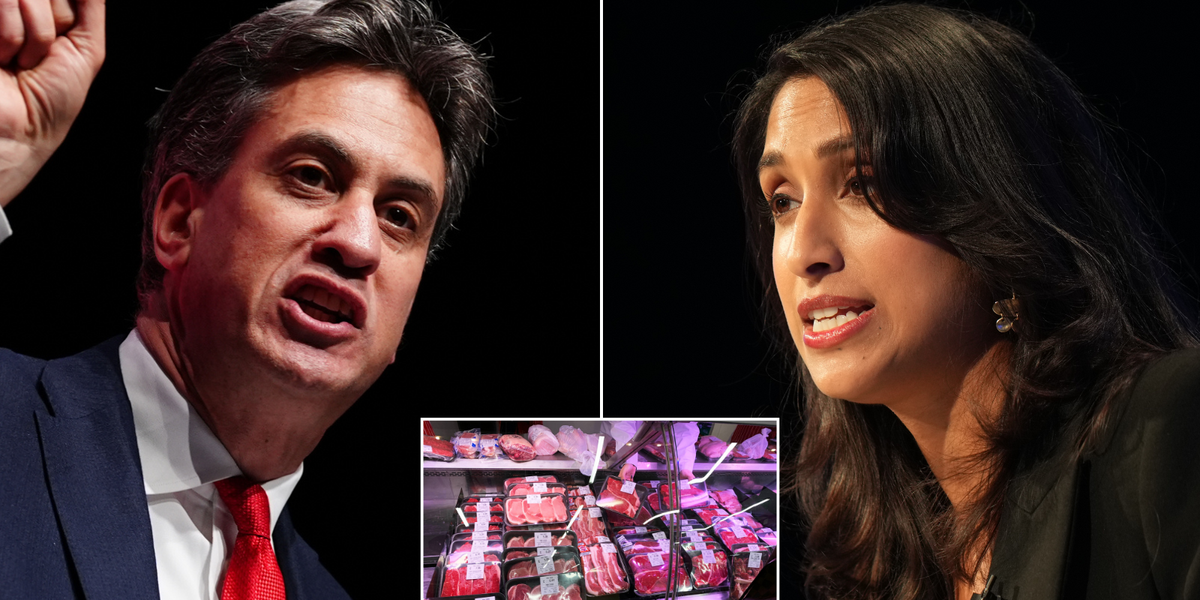The Controversial Push for Plant-Based Diets: A Look at the UK’s Net Zero Targets
In a bold move to combat climate change, the UK’s Climate Change Committee (CCC) has proposed a significant shift in the nation’s dietary habits. The recommendation to halve meat and dairy consumption by 2030 has sparked a heated debate among politicians, farmers, and the public alike. This article delves into the implications of this proposal, the potential for public unrest, and the broader context of the UK’s climate goals.
The CCC’s Recommendations
The CCC, an independent body that advises the government on climate policy, has set ambitious targets for the UK to reduce its carbon dioxide emissions by 81% by 2035, using 1990 levels as a benchmark. To achieve this, the committee argues that a fundamental change in dietary habits is essential. The chairman, Piers Forster, emphasized that persuading the British public to adopt a more plant-based diet is crucial for meeting these targets.
The CCC’s recommendations include not only reducing meat and dairy consumption but also potentially implementing measures such as reducing livestock subsidies, taxing meat products, and regulating advertising for meat-based foods. These strategies aim to encourage a shift towards plant-based alternatives, which are seen as more sustainable in terms of carbon emissions.
Political Reactions: A Divided Response
The proposal has not gone unnoticed in political circles. Senior Tories, including Shadow Energy Secretary Claire Coutinho, have voiced concerns that such drastic dietary changes could lead to public unrest. Coutinho warned that increasing the cost of living through energy price hikes and dietary restrictions could alienate the public, especially when they observe rising emissions in countries like China.
This sentiment reflects a broader anxiety about the potential backlash from consumers who may feel that their personal freedoms and choices are being curtailed in the name of climate action. The fear is that the government’s push for a plant-based diet could be perceived as an overreach, leading to dissatisfaction and unrest among the populace.
Farmers’ Concerns: The Impact on Agriculture
The CCC’s recommendations have also drawn sharp criticism from the agricultural sector. Farmers, such as David Handley from Farmers for Action, argue that the methane emissions from livestock are minimal compared to those from other sectors like transportation. Handley contends that the proposed regulations could devastate the farming industry and undermine the UK’s ability to produce its own food.
This tension highlights a critical intersection between climate policy and food security. Farmers are concerned that the push for reduced livestock numbers could threaten their livelihoods and the traditional farming practices that have been part of British culture for generations.
Industry Perspectives: A Call for Collaboration
Despite the pushback from farmers, some industry leaders appear to support the CCC’s recommendations. Tania Kumar, a director at the Confederation of British Industry (CBI), acknowledged the importance of collaboration between businesses and the government to achieve climate targets. She emphasized that meeting the 2030 and 2035 goals will require significant investment and a shift in how the food industry operates.
Kumar’s perspective suggests that while the transition may be challenging, it is also an opportunity for innovation and growth within the plant-based sector. The potential for new markets and products could provide a pathway for farmers and businesses to adapt to changing consumer preferences.
The Broader Context: Climate Goals and Public Sentiment
The CCC’s push for dietary change is part of a larger narrative surrounding the UK’s commitment to combat climate change. The government has set ambitious targets, but the CCC warns that the UK is currently off course in meeting its 2030 climate goals. The urgency of the situation necessitates bold actions, but these actions must also consider public sentiment and the realities of everyday life for citizens.
As the debate continues, it is clear that the path to a sustainable future will require careful navigation of the complex relationship between climate policy, public opinion, and agricultural practices. The challenge lies in finding a balance that promotes environmental sustainability while respecting the choices and livelihoods of the people affected.
Conclusion: A Path Forward
The CCC’s recommendations for reducing meat and dairy consumption in the UK are a reflection of the urgent need to address climate change. However, the potential for public unrest and the concerns of the agricultural sector cannot be overlooked. As the government considers its next steps, it must engage in meaningful dialogue with all stakeholders to create a sustainable and equitable path forward. The journey towards a greener future will undoubtedly be complex, but with collaboration and understanding, it is a journey that can lead to positive change for both the planet and its inhabitants.
